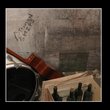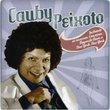| All Artists: Dmitry Shostakovich, Oleg Caetani, Milan Giuseppe Verdi Orchestra, Giuseppe Verdi Symphony Orchestra of Milan Title: Shostakovich: Symphony No. 8 [Hybrid SACD] Members Wishing: 0 Total Copies: 0 Label: Arts Music Original Release Date: 1/1/2006 Re-Release Date: 5/30/2006 Album Type: Hybrid SACD - DSD Genre: Classical Styles: Historical Periods, Modern, 20th, & 21st Century, Symphonies Number of Discs: 1 SwapaCD Credits: 1 UPC: 600554770482 |
Search - Dmitry Shostakovich, Oleg Caetani, Milan Giuseppe Verdi Orchestra :: Shostakovich: Symphony No. 8 [Hybrid SACD]
![Shostakovich: Symphony No. 8 [Hybrid SACD]](https://nationalbookswap.com/cd//l/01/6701/6136701.jpg) | Dmitry Shostakovich, Oleg Caetani, Milan Giuseppe Verdi Orchestra Shostakovich: Symphony No. 8 [Hybrid SACD] Genre: Classical |
Larger Image |
CD DetailsSimilar CDs
|
CD ReviewsIntense and Dramatic P. Edwin | Fukushima, Japan | 06/22/2007 (5 out of 5 stars) "There is more than one way to interpret this "War symphony". This is the fastest on disc, an intense and dramatic experience that shocks at times with its passion and verve rather than the cold tragedy portrayed by some interpreters. The first movement is very fast and at times reminds one of Kondrashin. Sonically, it is a spectacular recording, and deserves to be heard for its audacity. Caetani dares to be different, and those with an open mind may well thrill at this live performance." Caetani's speedracer interpretation R. Hutchinson | a world ruled by fossil fuels and fossil minds | 09/10/2006 (2 out of 5 stars) "At first glance it looks a bit peculiar to see a Shostakovich symphony cycle coming from the Giuseppe Verdi Symphony Orchestra of Milan. The only telltale clue is the conductor's name OLEG Caetani -- Oleg? Yes, it turns out, he is the son of the renowned Russian conductor Igor Markevich, but took his mother's name in order to make his own reputation (and perhaps to downplay some political controversy associated with his father's post-war years in Italy after marrying into an aristocratic family). The earlier installment of Caetani's cycle, DSCH's 5th & 6th symphonies, has been highly praised. This live recording of the 8th has been called by some critics a "return to the faster original Russian/Soviet performance tradition" of Mravinsky and Kondrashin. Unfortunately I cannot find any evidence for this claim. Caetani blazes through the tragic opening Adagio-Allegro non troppo in a little over 20 minutes, shaving five minutes off Mravinsky's time. Sometimes faster can be better, but in this case Caetani simply zooms past the depths of tragedy that set the stage for what is to come in the later movements. His Allegretto and Allegro non troppo, the pivotal battle scene, certainly do not suffer from the fatal plodding that afflicts some interpretations! The best recordings of the 8th (Solti's with Chicago, now out of print, Haitink's with the RCOA -- see my review, and Mravinsky's great 1960 performance -- see my review) all take between 60 and 62 minutes. Caetani's 52 minutes is not a return to tradition, it is a radical new interpretation. I don't see it as an improvement. Two stars is perhaps too harsh, but I mean to indicate what the listener is missing compared to the best recordings. Shostakovich's 8th Symphony is one of the greatest symphonies of the 20th century, a tragic statement against the futility and horror of war, but the first-time listener is not likely to realize it based on this recording. In the liner notes, Caetani comes up with one of the best images to capture the insane trumpet solo in the Allegro non troppo. Noting that it probably depicts the Battle of Kursk, a German-Russian tank battle, Caetani goes on to point out the "trumpet solo that resembles death with a great scythe on the battle field in an Otto Dix painting." See my SHOSTAKOVICH: A CENTENARY LISTENER'S GUIDE list for more recommendations and reviews of the music of the great Dmitri Shostakovich, who would have been 100 years old this month, September, 2006." 4.5 stars -- dramatic, intense and remarkably well-recorded Larry VanDeSande | Mason, Michigan United States | 03/11/2009 (4 out of 5 stars) "Oleg Caetani's recording of the Shostakovich Symphony No. 8 is part of his complete discography of symphonies by the Soviet composer recorded in the last half of this decade. This recording, taped in 2004 from a concert in Milan, was released in 2005.
Caetani, son of the late conductor Igor Markevitch, takes a uniform approach to this ritualistic music that was defined in the 2006 documentary "Shostakovich Vs. Stalin: The War Symphonies" as music depicting totalitarianism. Caetani's approach is direct, unsentimental and passionate. After a traditional opening phrase, you might say he burns rubber, starts fast, and rarely lets up on the gas. He directs the way people of a certain age may imagine Arturo Toscanini or Fritz Reiner doing the score. Yet there are surprises in store for the listener along the way, too. The occasional slowings in several sections come as a surprise. Yet, the one that bushwhacked me came at about 6 minutes of the final Allegretto when it almost became Coplanesque. I've heard many recordings of this symphony -- and I've sung some Copland -- and never before did Shostakovich remind me in any way of Copland! This is one of several tricks the conductor plays in the score, but most of the time he's pressing forward with urgency and creating headlong thrust. Some complain the speeds are too fast too often. I can't agree with that opinion. Caetani's tender has been compared to Russians the likes of Mravinsky -- even though he's a couple minutes faster in each movement, clocking in at just over 53 minutes compared to about 60 for the Russians. This is in contrast to most modern recordings that slow the music way down, draining its vigor and intensity, as if fattening it for slaughter. The last super audio account I heard, by Dmitri Kitaenko and the Cologne Gurzenich Orchestra, took the music at a much broader pace. While his lengthy developments in the beginning and closing movements created a threnody of loose tension, it did not wear well for me over term. While Caetani may seem superficial, I find it preferable to the widebody treatment that robs the music of its lifeblood. Not so in the Caetani recording! This is quick twitch, rapid fire, nervous tension about some of the 20th century more terrifying subjects delivered without hesitation. The middle movements tread along even a few points quicker than normal, creating even higher tension. While the Italian orchestra does not always sound like one of the world's best, it stays with its conductor's vision all the way. As for the sound, the thunderous timpani is about the best I've ever heard in super audio. The all-important solo woodwind passages, that often carry the misery Shostakovich wanted to project of life in Stalin's Soviet Union, come at you like a forlorn soul being taken away by the KGB (that's what the clangerous moments in Symphony 4 are about!) The sound stage is wide, deep and utterly realistic when you play this on a super audio player. The total impact is shattering in summation and rainbow-hued in execution. While uniformly fast, this music is never indifferent. I'm not yet ready to place this on the same rung as my favorite recording of this music, by Bernard Haitink and the Concertgebouw Orchestra, but it's definitely a contender for my top spot. Here is a vision of drama, terror, fear, loathing and intensity, all gathered in fabulous super audio sound in a live recording. Prepare yourself before listening, for this is a demonstration of life under totalitarianism in world class sound. Definitely a keeper." |




